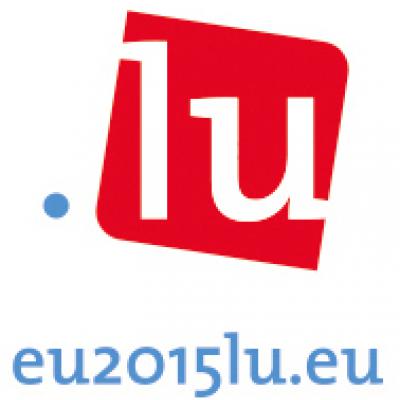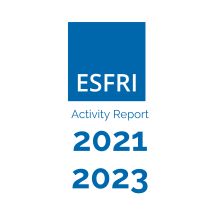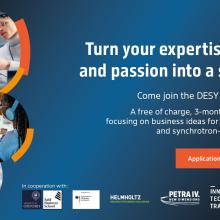42nd Delegates Meeting in Luxembourg focused on e-IRG/ESFRI collaboration and new e-IRG roadmap on future e-Infrastructures development
Twice a year the e-IRG delegates meet to discuss e-Infrastructure policy developments. The 42nd Delegates Meeting was held in Luxembourg on September 17, 2015. At this meeting, the "hot topics" included the relation between e-Infrastructures and Research infrastructures. e-Infrastructures are represented by e-IRG and the Research Infrastructures by ESFRI, hence the collaboration between e-IRG and ESFRI were on the delegates meeting agenda. Another important topic was the new e-IRG Roadmap on e-Infrastructures development in the coming years.
The European Commission is an important player in the e-Infrastructure area with several European funding programmes. At the delegates meeting, it was announced that the European Commission launched the Platform Digital4Science that can also be used for discussions about e-infrastructure current issues, for questions and answers about e-infrastructure strategy, policy and activities, for communication amongst project groups and for discussion about KPIs (key Performance Indicators), TRLs (Technology Readiness Levels), and collaboration agreements. These are new features in the Work Programme 16-17 for e-infrastructures.
Delegate Yannis Ioannidis, who is also involved in ESFRI, reported on the ESFRI progress that ESFRI is evaluating the proposals. This is being done by the ESFRI Strategic Working Groups (SWGs) in which e-IRG delegates participate. Face to face meetings of the SWGs with proposers have started. Apart from scientific quality of the Research Infrastructures, there is a focus on showing maturity, sustainability, scientific work etc. The e-IRG contribution is very significant, both in terms of preparation as well as all the questions that the e-IRG has established from the beginning and the participation of the e-IRG members in the SWGs. This is well recognised and appreciated by ESFRI, said Yannis Ioannidis. The mandate of the European Competitiveness Council given to ESFRI has been discussed at e-IRG/ESFRI chairs level and a new joint working group is being formed. In March 2016 a half-day joint ESFRI/e-IRG meeting is being planned. The meeting will coincide with the ESFRI roadmap presentation event on the 10th.
e-IRG Chair Sverker Holmgren summarised what has taken place with the Competitiveness Council invitation to ESFRI to look at the mechanism for coordinating investments of e-Infrastructure. At the June Riga meeting it was decided that e-IRG should approach ESFRI to address this invitation together and a mandate was given to the Chair to continue the discussions with ESFRI on this collaboration. The Chair has discussed with the ESFRI Chair the ToR for a joint ESFRI e-IRG working group. The draft ToR has also been discussed and accepted by the e-IRG Executive Board and has been sent to the ESFRI Executive Board. A main point is that e-IRG and ESFRI are producing a response in a joint matter. Also in the draft ToR there is an indication that discussion, communication and collaboration with e-IRG and ESFRI could continue in the future.
Chair Sverker Holmgren said that the process of countries for creating a roadmap and procedures for funding is one part of the mapping process about the impact of the national models. Collecting information on funding streams and coordination of investment at the national level is another part which might be a lot more difficult but e-IRG needs to look into it. He hopes that the trend continues that e-Infrastructures are included in the national roadmaps in a natural way.
The Mission and Vision, objectives and bylaws of the e-IRG were discussed in a mini-workshop. The current mission and vision is already many years old, so it is worthwhile to update them. The Executive Board will be working on preparing a new Mission and Vision statement that will be discussed in the next delegates meeting with the aim to adopt it. Strengthening the e-IRG as an advisory body should really be the focus and whether e-IRG should present itself as a coordination body needs further discussion. Other aspects that could be included in this objective are user needs and the collaboration with ESFRI. Furthermore e-IRG should follow up what happens with e-IRG proposals; what the visible impact is and how to make sure that the e-IRG achievements are really used in the best possible way.
There were many suggested improvements to the bylaws and hence it is clear that a revised version is needed. It is very important that the bylaws formalise the relation between the e-IRG delegates and the responsible ministries or government of the Member States. The e-IRG delegates should inform the appropriate body and make sure that the flow of information is a two-way flow.
There was also a proposal to establish a small e-IRG Task Force on the impact of national models that can work together with the support programme and the national delegates to make sure that the information is collected and provided.
It was mentioned that the existing Task Forces on the long tale of science and on data analytics and computing have as a subject areas of extensive work during the past 10-20 years and that will also be the case in the next 10-20 years. In order to have impact the work by e-IRG should bring something different from what already has been done and give a modern perspective. The Task Forces need to look into what has been done e.g. funded by the particular EC units and other sources.
The Working Group on the evaluation of the e-Infrastructures and development of related KPIs has only recently been established. It has to address KPIs in relation to EC funded projects. The ToR has been sent and is in the commenting/review process.
As far as the e-IRG roadmap is concerned, the next steps will be to suggest the structure of the roadmap and create a storyline defining the heart of the roadmap in maximal 5 pages. The ambition of the working group is to continue working and to make available the roadmap structure, agreement on its raison d'être and on the method to create it, and candidate topics with explaining text.
The first e-IRG workshop in 2016 will take place on 9 March 2016 (afternoon) and on 10 March 2016 (morning) at the Amsterdam Science Park. The theme is the Progress of the e- Infrastructure Commons - integration and interoperability, funding and revenue models. The ESFRI Roadmap launch will be on 10 March 2016 (afternoon) at the Royal Academy (KNAW) in Amsterdam. The first delegates meeting will be on 11 March 2016 (morning) in Amsterdam. The joint e-IRG/ESFRI meeting is planned on 11 March 2016 (afternoon).
By Leslie Versweyveld
Original Source : e-IRG blog





